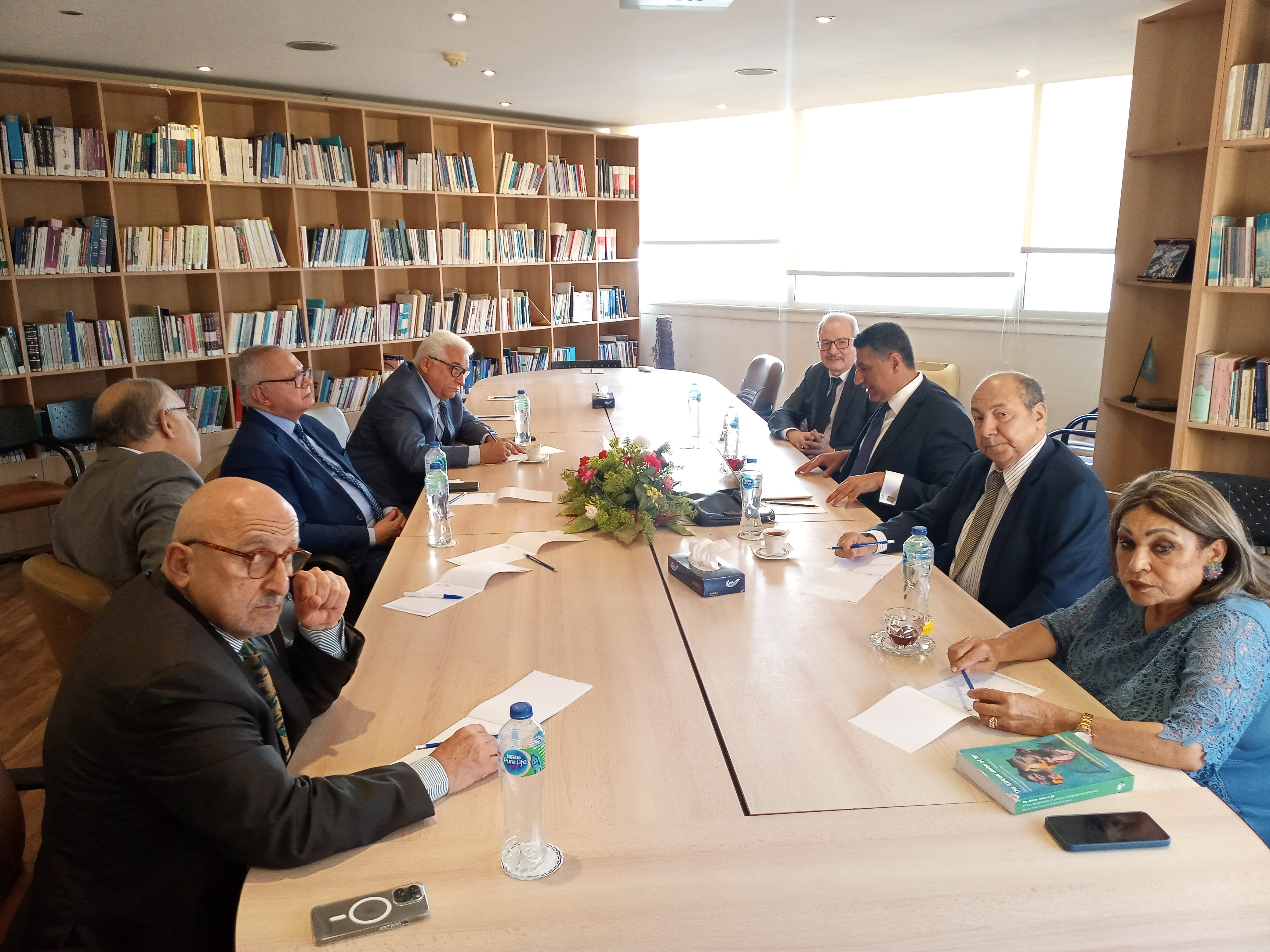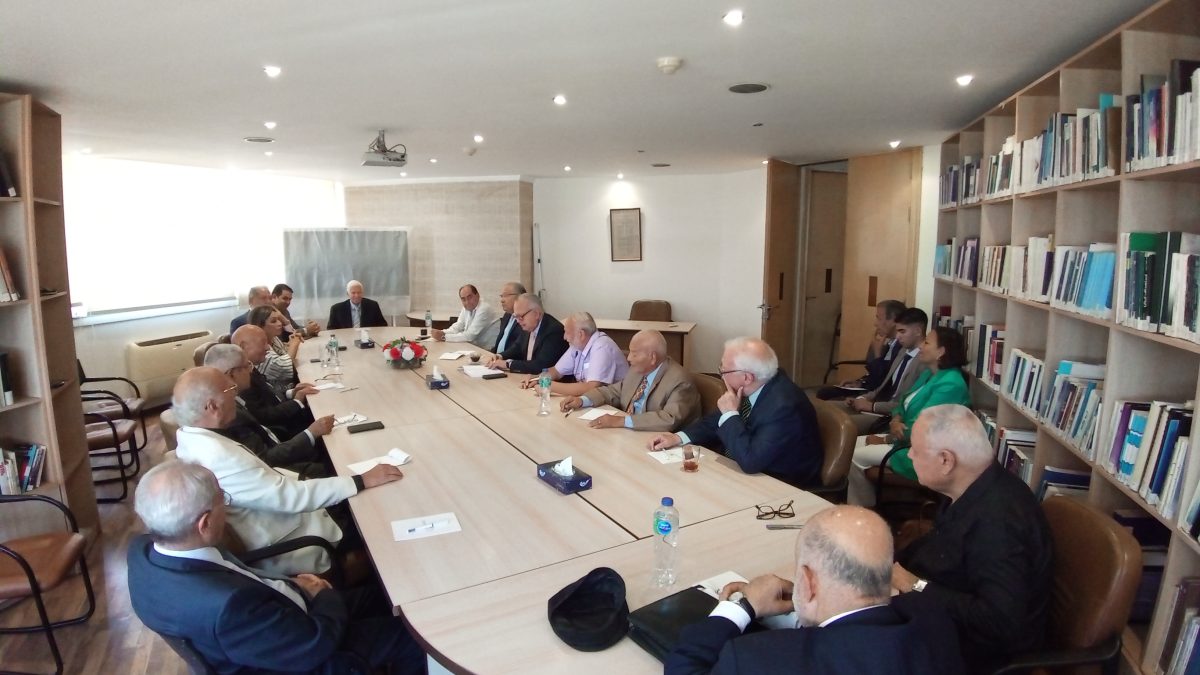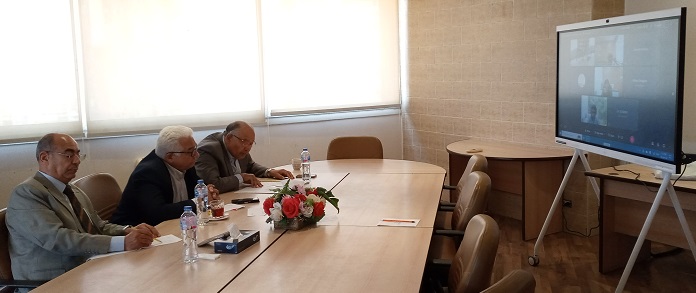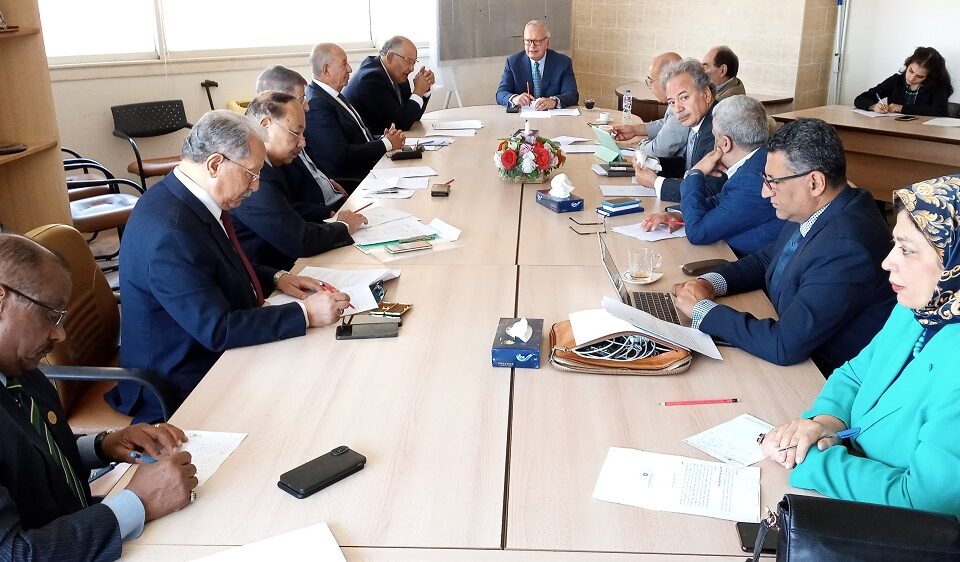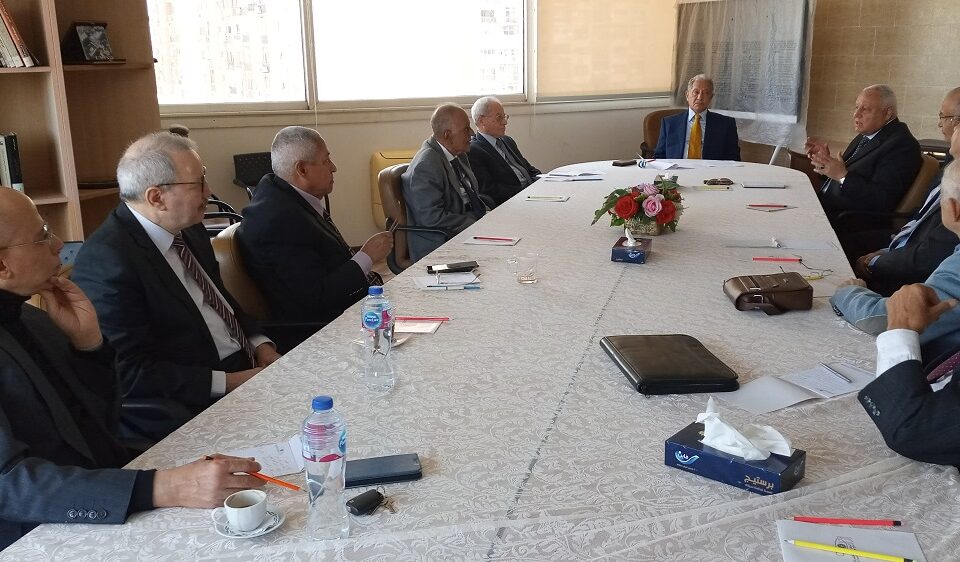Seminar on “The Distinctive characteristics of the African Union personality”
August 28, 2023Statement in support of the Libyan people
September 13, 2023
On September 9, 2023, the Council hosted a symposium, in which Mr. Mohamed Fayek, the former Minister of Information, spoke about “the future of Egyptian/African relations,” after the publication of his memoirs under the title “A March of Liberation,” which was published by the Center for Arab Unity Studies in Beirut in July of the year. The current one. The meeting was moderated by Ambassador Mohamed Al-Orabi, President of the Council, while a large number of diplomats, academics and researchers concerned with African affairs participated.
The meeting dealt with the following in particular:
-
The guest referred to the main stations in his life’s journey, starting with his early upbringing in the city of Mansoura, then the family’s move to Cairo and his enrollment in the Ibrahimiyya Secondary School and the Military College in 1946, through his participation in the 1952 revolution, where he led the force that besieged the Qoubba Palace, and he was still… With the rank of Yuzbashi “Captain”, he worked in both Military Intelligence and General Intelligence under the leadership of Zakaria Mohieddin, leading up to his assuming the Ministry of National Guidance, which later turned into the Ministry of Information, and as President of the National Council for Human Rights.
-
In this context, the guest went on to discuss his role as a General Intelligence officer in Egypt’s rediscovery of Africa, and its pioneering liberation role in the African continent, after President Abdel Nasser early realized the importance of Egypt’s regional role as a national liberation force opposed to colonialism and supportive of the right of peoples to obtain independence. Then, Fayek was assigned to assume responsibility for dealing with the African continent, which was the establishment of radio stations called “Voice of Africa from Cairo,” which addressed the African peoples in their local languages, which reached twenty-five languages, and had a great impact due to the spread of radio in villages and remote places. Thus, Cairo’s message reached almost everywhere.
-
Fayek pointed out that the matter was not easy, as the continent, which today includes more than fifty independent countries, had in 1952 only three independent countries: Egypt, Liberia, and Ethiopia, while the rest of the continent was suffering under the rule of European colonialism, the British, French, Italian, Portuguese, Belgian, and German. It meant that one could not enter any of these countries without obtaining an entry visa from the colonial authorities. Since it was not possible for Fayek, as an Egyptian intelligence officer, to obtain this visa, he used a Lebanese passport. On one occasion, he traveled incognito as a member of a trading expedition to buy livestock.
-
In this context, Egypt succeeded in establishing close relations with most of the national liberation parties and movements whose leaders were keen to visit Egypt. As the number of representatives of these movements increased in Cairo, Fayek established the “African League” on Ahmed Heshmat Street in Zamalek, to be the headquarters of the offices of these movements. These offices played an important role as a liaison between the leaders of the movements in their countries and the Egyptian government, as well as with the embassies of foreign countries sympathetic to them in Cairo. The association became a beehive with its various activities, and published the “Africa Renaissance” magazine, whose editor-in-chief was Abdelaziz Ishaq, and representatives of African liberation movements and a number of Egyptian researchers, such as Dr. Abdel-Malik Odeh and Professor Helmy Shaarawy, contributed to writing its articles.
-
It is worth noting that the association was frequented by leaders of liberation movements, many of whom later became presidents of their countries, such as Nelson Mandela in South Africa, Sam Nyoma in Namibia, Agostinho Neto in Angola, Kenneth Kaunda in Zambia, and Robert Mugabe in Zimbabwe. Therefore, Egypt enjoyed great influence in Africa, and Fayeq was the symbol and title of this connection. One manifestation of this is that when Mandela visited Egypt at the end of the eighties, the Egyptian government prepared for him a program of his visit, which he agreed to, and added one item to it, which was to meet Fayek. When Faik visited South Africa to follow the first general elections in which blacks participated with whites in 1994, he was one of four figures whom Mandela considered as his guests.
-
For their part, the participants praised the “March of Liberation” memoirs, as more than just a biography of a person, no matter how many or high the positions he held. It is a documentation of a number of the most important milestones of political development in Egypt, in the past seventy years, during the eras of Presidents Abdel Nasser, Sadat, and Mubarak. It also does not limit itself to political matters. Rather, we find in it talks about many artistic and literary figures, such as Umm Kulthum, Abdel-Wahhab, Abdel-Halim, Farid Al-Atrash, Fairouz, and Sabah, among the artists, and about Mahmoud Darwish, Samih Al-Qasim, and Tawfiq Ziyad, among the poets of the Palestinian resistance, and about his meetings with figures who influenced the history of… The world, such as the Cuban freedom fighter Guevara and the Chinese Prime Minister Xuwen. In all of these matters, Fayek wrote about what he witnessed, saw, or heard directly, in an objective manner and with clear moral integrity, without exaggerating in presenting his role and value, which is certainly something to his credit.
-
The participants also stressed that it is not an exaggeration to say that Fayeq rediscovered Africa in the 1950s, using the tools that were in place at that time and achieved great success. Therefore, today, with Egypt renewing its interest in the African continent, it must benefit from the experience of the 1950s and learn from its lessons, but in different circumstances and context. As Fayek says, we must study the past to serve the future.
